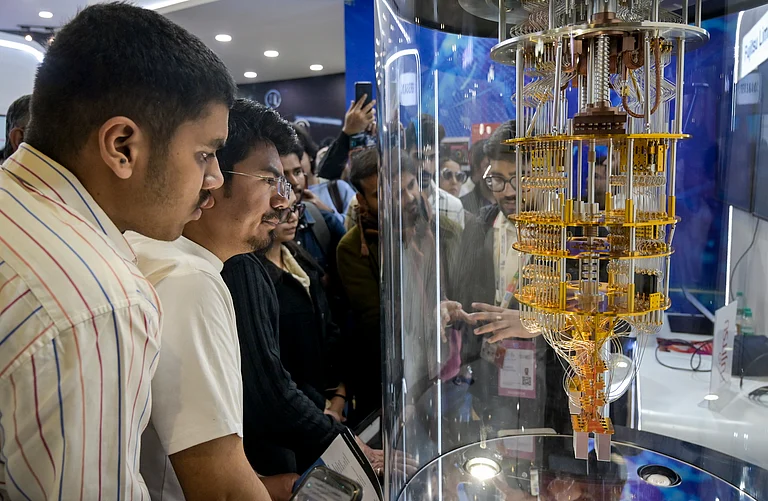A Banaras Hindu University report showed that nearly 30 per cent of the individuals who received Bharat Biotech's anti-Covid vaccine, Covaxin, complained of health issues during the one-year follow up study.
The study, conducted by a team of researchers at BHU, said that nearly one-third of the Covaxin takers reported 'adverse events of special interest' (AESI). The complaints of health issues were predominated by viral upper respiratory tract infections.
The study -- which took into account long-term safety of the BBV152 vaccine in adolescents and adults, claimed that serious AESI including stroke and Guillain-Barre syndrome were reported in one per cent individuals.
BHU's study -- published in the 'Springer Nature' journal -- comes amid the admission made by pharmaceutical giant AstraZeneca that its Covid vaccine, Covishield, can cause rare side-effects of blood clotting and lowering of platelet count.
Conducted between January 2022 and August 2023, the study said, "Close to one third of the individuals developed AESIs. New-onset skin and subcutaneous disorders, general disorders, and nervous system disorders were the three most common disorders observed in adolescents after receiving the vaccine."
As many as 926 participants took part in the follow up study and of these 635 were adolescents and 291 adults. The participants were asked about long-term adverse events of special interest after one year of vaccination.
Among the common AESIs in adolescents were new-onset skin and subcutaneous disorders (10.5 per cent), general disorders (10.2 per cent) and nervous system disorders (4.7 per cent).
While AESIs common among adults were general disorders (8.9 per cent), musculoskeletal disorders (5.8 per cent) and nervous system disorders (5.5 per cent).
Abnormalities in menstruation were noticed in 4.6 per cent of the female participants, while ocular irregularities and hypothyroidism were observed in 2.7 per cent and 0.6 per cent of participants respectively.
As many as four deaths, including three women and one man, were reported in adults, the study said, adding that all four of them had diabetes. Three of them had hypertension and two with history of pre-vaccination Covid-19.
Two of the deaths were mainly caused by stroke and one was due to post-Covid-19 rhinocerebral mucormycosis, which supposedly spread after vaccination.
The fourth death was of a woman who had multiple episodes of unconsciousness after vaccination, the cause of which, remained unidentified till her death.
Since there is an absence of a definite reason, no conclusions could be drawn from this case.
With the majority of AESIs persisting for a significant period, extended surveillance of COVID-19-vaccinated individuals is warranted to understand the course and outcomes of late-onset AESIs, the study underlined.
Serious AESIs may not be uncommon. They might require increased awareness and larger studies to understand the incidence of immune-mediated phenomena post-COVID-19 vaccination.
Female individuals, adolescents with pre-vaccination Covid-19, those with co-morbidities and those with post-vaccination typhoid had 1.6, 3, 2.7 and 3.2 times higher odds of incessant AESIs respectively.
The study revealed that adults with co-morbidities had more than two times higher chances of AESIs and persistent AESIs.
Adults who got three doses of BBV152 had four times higher risk of AESIs, while those with one dose had two times higher risk in comparison to adults who received two doses of Covaxin.
(With agency inputs)






















